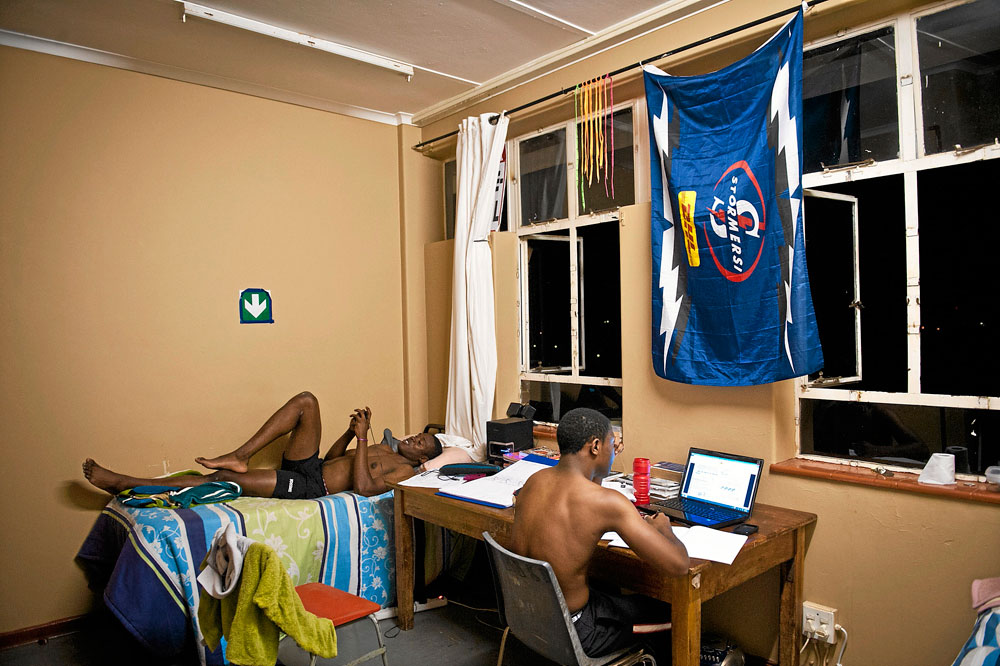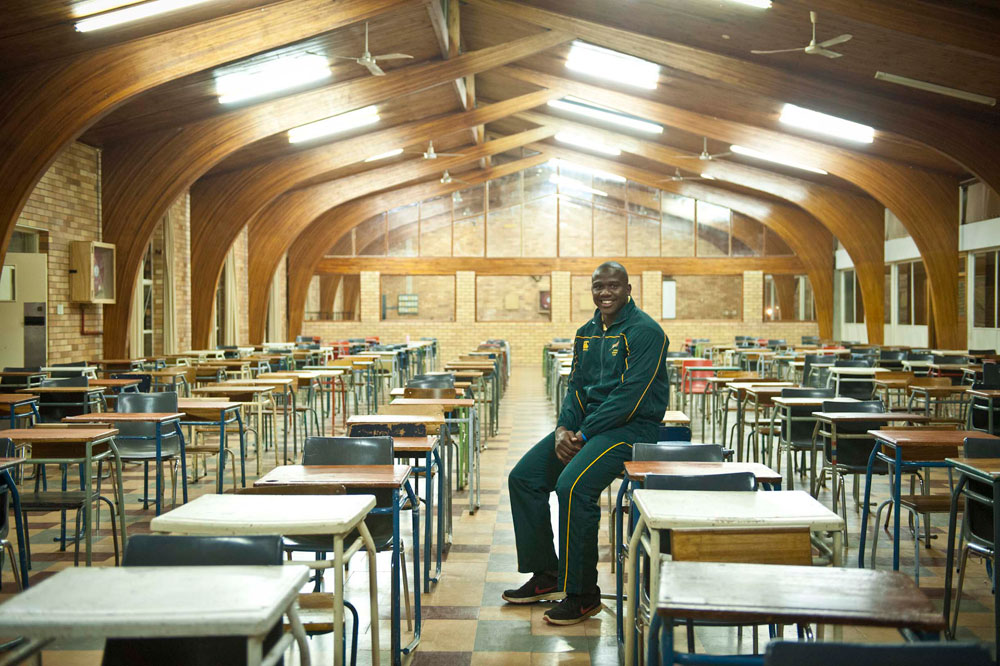When their opponents in lily-white rugby teams start calling the black Hoërskool Ben Vorster players "kaffirs" during matches, their response is always the same: "Just look at the scoreboard."
The scoreboard will invariably say that the Ben Vorster boys are winning. They're not winning because they are black tokens in the sport or because someone felt sorry for them. They're winning because they're talented and because they sweated for it. They're winning because they deserve it.
This is the story of a school in the remote citrus-farming valley of Tzaneen in Limpopo: nine out of the starting 15 first-team rugby players at this traditionally white, Afrikaans school are black and, when they run on to the field at some of their matches, they are called "dogs".
But these boys and their coach are undeterred by these comments — in fact, their iron-hard will, discipline and sights set on bright futures won them the revered schoolboy rugby title of Under-18 Beeld Trophy 2013 champions last month, an accolade fought for by high schools in six provinces.
Coach Andre Hay says he tells his "bulle" (bulls): "Play the ball, not the player. If you get into a fight with that player, you'll come off with nothing, but if you focus on the game, you will probably come off with a win."
He doesn't see colour when choosing his team. He sees talent. "I told the parents right at the beginning: don't come tell me you did this for the school and contributed that … No, we put the best players on the field. Players want to know they are there because they are the best."
Hay does not want to talk about quotas in sport. He wants to talk about how sport unifies, not divides. "Look at what happened at the 1995 World Cup game when Nelson Mandela walked on to the field. He said sport can heal."
The school was founded in 1962, a typical verkrampte Afrikaans-medium school like the others in the area. Today, it is a dual-medium school and 30% of its pupils are black. Many of them come from disadvantaged backgrounds and homes in the townships of Ga-Modjaji and Letsitele.

Turning in: The first team rugby players in their school dorm. (Delwyn Verasamy, MG)
Some of their parents are mineworkers and domestic workers, or are unemployed, principal Chris Denysschen says. The pupils get to go to the school because members of the traditional school community offer a "helping hand", he says.
"Someone will come through and say, 'I know that kid is struggling financially but he's got such talent, come let me pay for him'."
Denysschen says transformation should happen naturally and the key ingredient for its success is to teach pupils to "respect each other, no matter what". The school's motto is "Die alles in een skool" (The all in one school) and this applies to multiculturalism too, he says.
"I think we are an example of what breaking down discrimination at a grass-roots level looks like in a country where not everyone wants to change."
It's Tuesday, about 5pm. The sky is turning purple in the fading light. About 20 boys are playing touch rugby on the school's main rugby field.
Boys and girls walk past with backpacks slung over their shoulders on their way to their hostels. There are far-off knocks of cricket balls on bats from another field and a group of boys shout with laughter, wrestling each other nearby.
Reuben Ragolane comes over to chat. He plays for the under-15 A team and one day wants to play for the Blue Bulls. If rugby doesn't work out, he wants to study geology at the University of Pretoria.
His housemaster pays for his hostel fees.
"He's like a father to me," Ragolane says. "He doesn't hold on to things. When we do something wrong, he says: 'Today you did this wrong, but tomorrow you will do it right.' "
Race doesn't come into the order of things in the hostels or the classrooms. "They treat me well because I'm disciplined and committed to my work … they taught me how to believe in myself," Ragolane says.
It's dark outside. In the passage of the Vyfster boys' hostel, five black first-team players gather round, interrupting each other as they tell me about Ben Vorster or "Vossie" greats the school has produced.
"There's Trevor Nyakana who is a Springbok now," says Mitch Mametsa.
"And there's Kefentse Mahlo who's with the Bulls under-21," says Tshepiso Mahasha. Mahlo's brother, Theo, is one of the five players talking to me. He smiles proudly.
"We live rugby here," says Surprise Mathabela. "Up at 5am every morning at the gym, practices five days a week in season. There are good coaches and good facilities. We get what we need to be the best we can be."
A white pupil comes out of his room where an open fridge serves as an air conditioner. It is at least 25 degrees.
He joins his black friends, leans on one's shoulder and tells me that "race isn't a thing" at the school. "The black pupils speak Afrikaans and some of the white pupils speak Sepedi and Xitsonga."
Junior Springbok centre Jixie Molapo is a matric student at the school. They were taught to draw life lessons from rugby, he says, talking to us in his hostel room.

Top notch: Junior Bok Jixie Molapo
"You get tackled, you fall down but you always get up again," he says to good-natured jeers from his teammates who sit in on the interview.
"Ah, altyd [always] coming with the punchlines," one says.
Molapo walks us out of the hostel as a pair of boys walk in with polystyrene boxes of food and say: "Naand, tannie [Good evening, ma'am]."
With the boys in their dorms, a calm descends over the school grounds. The Lowveld wind is hot but Molapo puts on his full Springbok tracksuit. He wants to look smart for the photos.
We dodge the tsik-tsik-tsik of the water sprinklers to reach the now spotlight-lit field.
"The racist comments don't bother me any more. Maybe they will always be there, maybe they won't. For now, I'm going to keep playing rugby."
He's a big guy and his tracksuit top is a little too small for him.
Is your mom proud?
He laughs: "She's very, very proud of me."